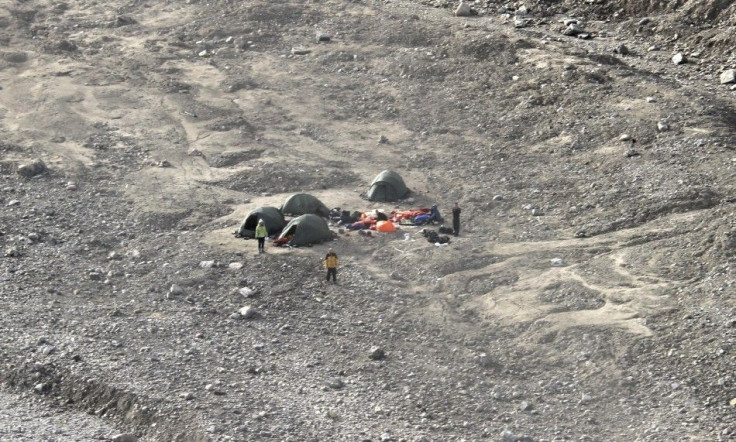Polar Bear Attack Investigation: Bear was Underweight and Starving

The 500-pound polar bear that killed a British teenager and mauled four others on a Norwegian expedition was significantly underweight and starving, Norwegian officials said Sunday.
The news of the examination results came as the first set of survivors returned to Britain.
Scott Bennell-Smith, 17, of Cornwall, and Patrick Flinders, 16, of Jersey, were taken in an air ambulance to hospitals in England. The team leaders, Michael "Spike" Reid, 29, and Andy Ruck, 27, who were both mauled as they tried to assist the boys, were due to be transferred Monday, the Times reported.
Horatio Chapple, 17, perished in the incident.
While the surviving boys suffered severe injuries, all are said to be in stable condition.
The trip to Norway's Spitsbergen Island was organized by The British Schools Exploring Society (BSES). The group was founded in 1932 by a member of Captain Scott's final Antarctic expedition. Based at the Royal Geographical Society in London, BSES organizes exploratory trips for young people that involve scientific research in wilderness areas.
BSES told the BBC:
"We regret to confirm that [the leaders] injuries remain severe, although they are both stable.
"Everyone involved in BSES remains focused on providing as much support as possible to those affected by the tragic incident on 5 August in Svalbard."
The organization confirmed that the eight uninjured members of the group involved in the incident had already returned to the UK.
The group had been researching climate change, documenting changes to the glacier since previous expeditions.
Reid, the group leader, was seriously injured around the face and neck before he fired the single shot that killed the bear.
His courageous move has been praised by the 13-member team that was camping at the Von Postbreen glacier in northern Norway.
Head of security at the University of Svalbard, John Ingen Karlsen, told the Norwegian newspaper Aftenposten that although the expedition team had correctly pitched their tents on a hill and away from the water's edge, they had made two errors.
Officials are still unclear why the trip-wire set up around the campsite failed to trigger any warnings or detonate the "bear flares," which are used to scare off the predators. Officials said that they may have been wrongly assembled.
Also, unlike many expeditions, the group did not have anyone on "bear watch" and the animal entered the tent camp at the glacier unnoticed.
© Copyright IBTimes 2024. All rights reserved.






















